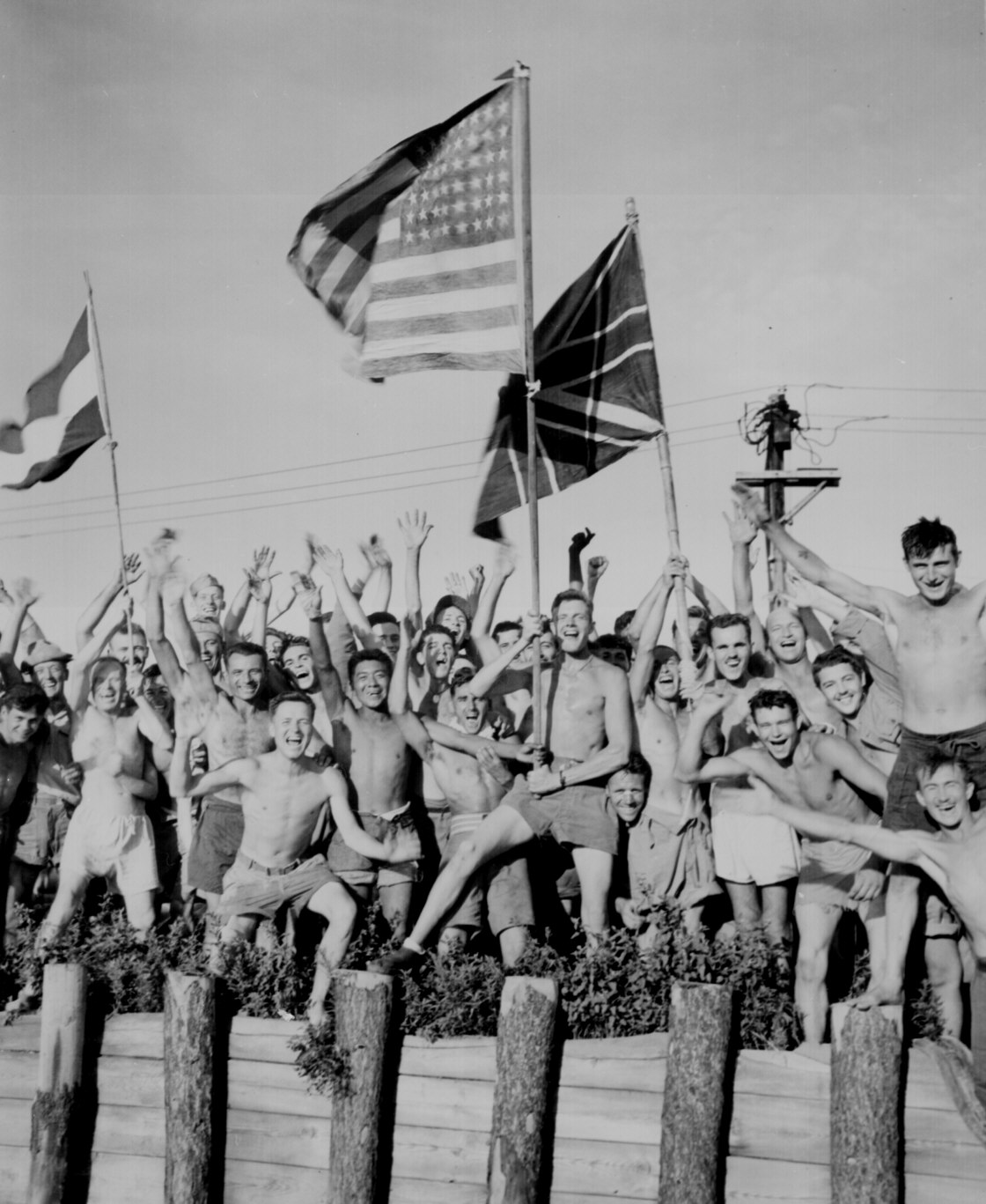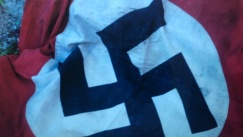
Allied POWs celebrate their liberation after imprisonment in Japan.
One of the great challenges for any historian is to imagine what it was like to live in the past. Not so much coming to terms with the obvious changes, like living with no internet and no Greek debt crisis, but trying to understand the different way people expressed themselves and the different belief systems they held dear.
I’ve been thinking a lot about this in part because of posting the testimony of Peter Lee on the site for subscribers this week. He was one of the most impressive people I ever met. Upright, dignified, self-effacing, he described the horror of his own captivity in Borneo during the war. Japanese guards beat him, and his fellow prisoners, and fed them on near-starvation rations. Yet Peter Lee told me that he felt the important thing was not to hate his captors but instead to focus energy on helping his fellow POWs. ‘In those sort of circumstances,’ he said, ‘keep your mind and body occupied as much as you can and don’t mope about and never feel sorry for yourself.’ In other words, he said: ‘in the old British phrase, you have to grin and bear it.’
I thought as he told me this steadfast philosophy how much it was a product not just of his own individual thinking but of a whole belief system that many members of his class, at the time, subscribed to. Indeed, his view that the way to deal with terrible problems in one’s life is to ‘grin and bear it’ is something that others like him from that time had expressed to me before.
Many veterans tried, after the war, to live the rest of their lives according to this ‘never feel sorry for yourself’ mantra. I remember a few years ago a relative of mine – who like Peter Lee had been a British officer during the war and who came from a similar background – was dying of a horrible wasting disease over a period of about 18 months. I was astonished at his bravery. He never fell apart and never moaned about his fate. I told him that I was in awe of his courage. He looked at me like I had said something distasteful. ‘I don’t think it is necessary to say that kind of thing,’ he replied.
How could these people behave with such dignity and self-sacrifice? To what extent was this stoical attitude a product of their own genetic make-up and to what extent a product of their upbringing, social class and the time they happened to be born into?
And if it was a result of when and where they happened to be born, to what extent should we give them credit for their impressive way of living?
Like so many important questions – easy to ask and hard to answer.
 Twitter
Twitter





